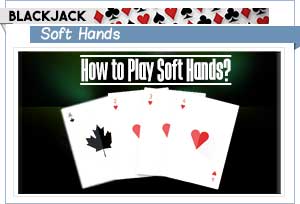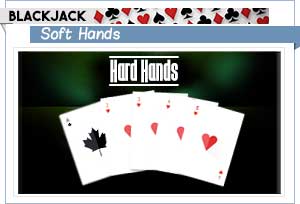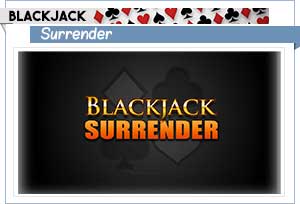Blackjack is considered to be one of the most popular casino games on a global scale as it is played by a staggering number of players of all nationalities. This exciting casino game has a lot of different variations which is the reason why it appeals to all types of players, regardless of their culture and personal preferences. Furthermore, nowadays most casinos offer a huge diversity of blackjack tables which feature different betting limits. It doesn’t matter whether you are a high roller or a more conservative player because either way, you will be able to find a table which suits your budget and betting habits.
Blackjack is one of the most widespread casino games for several reasons. It offers simple rules and low house edge which have undoubtedly contributed to its ever-increasing popularity. In order to be able to determine the type and the total of your hand, you first need to get familiar with the way the cards are counted.
The card system in blackjack is very straightforward and easy to remember and understand. In brief, all cards are worth their numeric value, except for all queens, kings, jacks and aces. The latter can be counted as one or eleven. All face cards receive ten points each. Now that you are familiar with the assigned value of the cards, let’s have a look at some of the hands which you will inevitably get during the course of the game and how to tackle them successfully.
Definition of Soft Hands
In blackjack, whenever you have an ace in your hand that can be counted as eleven, you have a soft hand. These hands are considered to be very beneficial since you can adjust their total, depending on your current situation. If you have a soft hand, this means that you cannot go bust by hitting because you can always change the value of the ace at any time. Knowing that you cannot surpass twenty-one and lose your bet instantly is one of the reasons why many players hope for these types of hands.
In theory, this is how soft hands are defined. Now let’s have a look at some of the possible card combinations that you can get during the course of the game. For instance, if you get dealt an ace and a four, this is soft fifteen. Let’s assume that the dealer has a strong up card and you decide to improve your hand by hitting. You happen to draw an eight but instead of going bust, you can simply switch the value of the ace to one. This is one of the reasons why the ace is considered to be the most powerful card in the deck as it gives you a great flexibility and freedom to play with your hand’s total.
| Cards | Hand | Draws | New Hand | Switches to |
|---|---|---|---|---|
|
AA
22
|
Soft 13 |
44
|
AA
22
44
|
Soft 17 |
|
AA
33
|
Soft 14 |
99
|
AA
33
99
|
Hard 13 |
|
AA
44
|
Soft 15 |
88
|
AA
44
88
|
Hard 13 |
|
AA
55
|
Soft 16 |
55
|
AA
55
55
|
21 |
How to Play Soft Hands
 Sooner or later during your session, you will inevitably get dealt one of the possible card combinations that compose a soft hand. In fact, soft hands are so common that the basic strategy chart contains a section dedicated to them. Bear in mind that after all every move you make on the table matters as it can open many new opportunities for a potential profit. Therefore, if you want to make the most of every game, it is best to learn the basic strategy.
Sooner or later during your session, you will inevitably get dealt one of the possible card combinations that compose a soft hand. In fact, soft hands are so common that the basic strategy chart contains a section dedicated to them. Bear in mind that after all every move you make on the table matters as it can open many new opportunities for a potential profit. Therefore, if you want to make the most of every game, it is best to learn the basic strategy.
The suggested moves in the basic strategy chart are based on the total in your hand and the up card of the dealer. You need to make your moves by taking into account these two factors. Since every situation can lead to several different outcomes which are not necessarily bad for the player, there are many available basic strategy charts. Regardless of which one you opt for, just make sure to remember it correctly and stick to it throughout the game.
The basic strategy doesn’t guarantee you a certain win, but it can help you minimize your losses to some extent. If you want to be able to further master this exciting card game and lower the house edge, even more, you should learn a card counting system. Now, let’s have a look at the possible soft hands you can get throughout the game and how to tackle them successfully.
Let’s assume that you are dealt an ace and a two or in other words, a soft thirteen. In such cases, you should hit, unless the dealer’s up card is a five or a six as then, it is best to double down. The strategy you should apply for soft fourteen, fifteen and sixteen is the same – always hit unless the dealer’s up card is a four, a five or a six because in such cases, the chart calls for doubling down. If you have an ace and a six in your hand and the dealer’s up card is a three, a four, a five or a six, you should double down. For the rest of the cases, it is best to hit.
The strategy for soft eighteen is a bit more complicated as it calls for three different moves, depending on the up card of the dealer. If you have such a hand and the dealer’s up card is a three, a four, a five or a six, you should double down. However, if his/her up card is a two, a seven or an eight, it is best to stand. For the rest of the cases, you should request an additional card or in other words, hit.
Last but not least, if you have a soft nineteen or twenty, you should always stand, regardless of the up card of the dealer. The logic behind this move is that by having such hands, you are placed in an extremely favorable position and any other decision would lead to much more disadvantageous circumstances and outcome. Furthermore, bear in mind that the average winning hand is 18.5 points, meaning that the total of these two hands will be most likely sufficient to beat the dealer.
| Your Hand Total | Dealer’s Up Card 2-6 | Dealer’s Up Card 7-A | ||||
|---|---|---|---|---|---|---|
| 13-14 | Hit but double down vs 5, 6 | |||||
| 15-17 | Hit but double down vs 4, 5, 6 | |||||
| 18 | Stand vs 2, 7, 8 | Double vs 3-6 | Hit vs 9-A | |||
| 19+ | Stand | |||||
Definition of Hard Hands
 Hard hands are the hands which don’t contain an ace or which have an ace that must be counted as one as otherwise, their total would exceed twenty-one. These hands are considered disadvantageous and very risky because when you have them, your chances of busting are extremely high, providing that you hit. For instance, if you get dealt a seven and an eight, you have a hard fifteen. Of course, this doesn’t apply to low-value hands whose total is four, five, six, seven or eight as they can be easily improved and there is not much risk involved. In fact, in such cases, it is always best to hit, regardless of the up card of the dealer.
Hard hands are the hands which don’t contain an ace or which have an ace that must be counted as one as otherwise, their total would exceed twenty-one. These hands are considered disadvantageous and very risky because when you have them, your chances of busting are extremely high, providing that you hit. For instance, if you get dealt a seven and an eight, you have a hard fifteen. Of course, this doesn’t apply to low-value hands whose total is four, five, six, seven or eight as they can be easily improved and there is not much risk involved. In fact, in such cases, it is always best to hit, regardless of the up card of the dealer.
How to Play Hard Hands
If your hand’s total is nine and the up card of the dealer is a three, a four, a five or a six, you should double down. For the rest of the cases, it is best to try and improve your total by hitting. If you have a total of ten or eleven, you should always double down, unless the dealer’s up card is a ten or an ace. If you happen to have two cards which make up a total of twelve, it is best to hit, unless the up card of the dealer is a four, a five or a six as then, you should stand.
The strategy for any total that equals seventeen or that surpasses this number is the same – you should simply stand. As for the rest of the possible hard hands – hard thirteen, fourteen, fifteen and sixteen, it is best to stand in case the dealer shows a two, a three, a four, a five or a six. If his/her up card is any different, you have to hit instead and try to improve your total as the dealer is in a better position than you are.
| Your Hand Total | Dealer’s Up Card 2-6 | Dealer’s Up Card 7-A |
|---|---|---|
| 4-8 | Hit | |
| 9 | Double except against 2 | Hit |
| 10-11 | Double if more points than dealer | |
| 12-16 | Stand | Hit |
| 17+ | Stand | |
Which Hands to Surrender
 Inevitably, at some point during the game, regardless of your skills and knowledge, you will find yourself in a situation in which you are almost certainly bound to lose your bet. In such cases, a wise decision is to take advantage of the surrender option. It should be noted that this move is not always available since it can be extremely beneficial. This is the reason why it is best to check in advance whether the rules of the blackjack variation of your choice allow it or not. If you are deprived of the opportunity to make this move, you should play according to the basic strategy and hope for the best.
Inevitably, at some point during the game, regardless of your skills and knowledge, you will find yourself in a situation in which you are almost certainly bound to lose your bet. In such cases, a wise decision is to take advantage of the surrender option. It should be noted that this move is not always available since it can be extremely beneficial. This is the reason why it is best to check in advance whether the rules of the blackjack variation of your choice allow it or not. If you are deprived of the opportunity to make this move, you should play according to the basic strategy and hope for the best.
By choosing this move, you get to keep half of your bet but you voluntarily give the other half to the casino without playing your hand. In other words, you withdraw from the current game with half of your original bet in a situation in which you were bound to lose everything. However, this move is only beneficial if you know how and most importantly when to use it.
For instance, if you have a hard fifteen or a hard sixteen and the dealer shows a nine, a ten or an ace, it is highly recommended to take advantage of this move. However, if the total in your hand consists of a pair, let’s say two 8’s, you should apply a different approach. If you have a pair of 8’s, it will be most beneficial for you to simply make two new hands by splitting the pair. This way, you have the chance to form two separate hands which have a good chance of making a decent total, providing that each one receives an eight.
FAQ
Yes, there is. Whenever you have a pair of 10’s in your hand, you should refrain from splitting it. Instead, you should simply stand, regardless of the up card of the dealer. The reason why is that by having such a hand, you are in a great position because you have an extremely strong total. In such cases, the odds are in your favor as a total of twenty can be hardly improved. In fact, you have a 90% chance of winning if you stand as usually, this total is completely sufficient to make you a winner.
Blackjack is a card game in which there is sometimes no good or bad move, just different choices that lead to different opportunities. Nevertheless, there are some moves that you shouldn’t make under particular circumstances as they have proven to be disadvantageous. One of the most misplayed hands in blackjack is a soft eighteen hand, in particular, when the dealer shows a nine, a ten or an ace.In such cases, many players tend to believe that a total of eighteen is sufficient to beat the dealer and as a result, they choose to stand. While it is true that this total is a very decent one, in most cases, it is simply not enough. Moreover, bear in mind that it has been estimated that the average winning hand is 18.5 points. It should be noted that if you decide to hit, your chances of winning aren’t that high either but nevertheless, this is the lesser of the two evils.
- Atlantic City Blackjack
- Best Blackjack Systems
- Best Real-Money Blackjack Sites
- Blackjack Odds
- Blackjack Rules
- Blackjack Strategy
- Blackjack Switch
- Blackjack Variations
- Difference Between Blackjack Games
- European Blackjack
- How To Play Live Casino Blackjack With a Vanilla Prepaid Card
- Multi-Hand Blackjack
- Play Blackjack Online
- Pontoon
- Progressive Blackjack
- The Most Popular Blackjack Versions
- Unlocking the Secrets of Blackjack Switch: A Strategic Twist on Classic Casino Gaming
- Vegas Strip Blackjack













